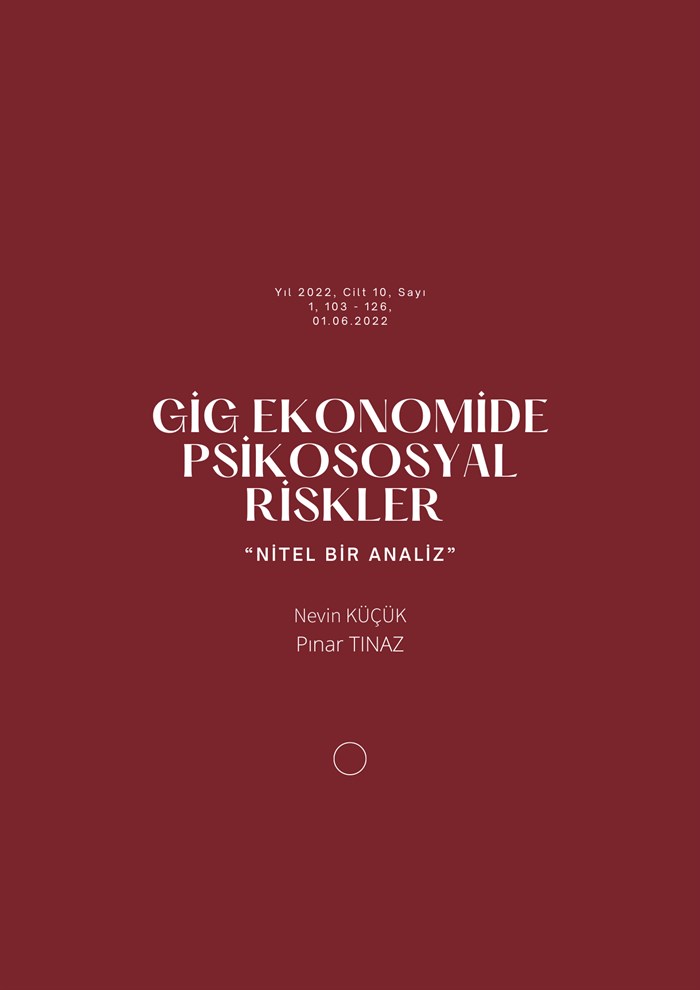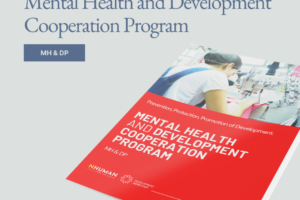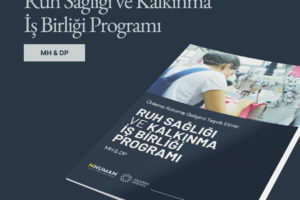
PSYCHOSOCIAL RISKS IN GIG ECONOMY “A QUALITATIVE ANALYSIS”
RESEARCH ARTICLE
EN-PDF DOWNLOAD Mendeley
![]() EndNote
EndNote ![]() BibTex
BibTex ![]() Show Source
Show Source
PSYCHOSOCIAL RISKS IN GIG ECONOMY “A QUALITATIVE ANALYSIS”
Year 2022, Vol 10, Issue 1, 103 – 126, 01.06.2022
https://doi.org/10.14514/BYK.m.26515393.2022.10/1.103-126
Abstract
The concept of gig economy, which takes its name from the music industry and means "short-term work", is an economy that adopts a labor market consisting of free and short-term jobs as a mechanism where there is no work and no employer. Psychosocial risks/psychosocial hazards were defined by the International Labor Organization in 1984 as “interactions that have the potential to affect health, job performance and job satisfaction through perceptions and experiences between the working environment, job content, organizational conditions and employee capacities, needs, culture and non-work issues”. defined as. Psychosocial risks, which are evaluated in two main categories in terms of the context of the job and the content of the job, are one of the less studied topics in the gig economy, but it is an issue that needs a comprehensive evaluation in terms of employee health and safety in the gig economy. This study was designed as a qualitative research to analyze psychosocial risks in gig economy workers and consists of in-depth interviews with 20 people and a detailed analysis of these interviews.
Keywords
Gig Economy, Psychosocial Risks, Gig Economy Worker, Platform Employee, Sharing Economy
Source
- A.Ş., T. (2021). What is Flexible Economy. Isbank.com.tr. Retrieved 21 November 2021, from https://www.isbank.com.tr/blog/esnek-ekonomi-nedir.
- Aloisi, A. (2016). Commoditized Workers. Case Study Research on Labor Law Issues Arising from a Set of “on-Demand/Gig Economy” Platforms. Comparative Labor Law Policy Journal. 37(3). 653-690.
- Alpass F. (2017). Bridge Employment. In: Pachana NA (eds) Encyclopedia of Geropsychology. Springer, Singapore. https://doi.org/10.1007/978-981-287-082-7_314
- Appelbaum, E., Kalleberg, A., and Rho, HJ (2019). Nonstandard work arrangements and older Americans, A2005–2017. Washington, DC: Center for Economic and Policy Research and Economic Policy Institute.
- Askitas, N., Eichhorst, W., Fahrenholtz, B., Meys, N., and Ody, M. (2018). Industrial Relations on Social Dialogue in the Age of Collaborative Economy (IRSDACE). National ReportGermany. IZA Research Report No. 86.16 Maternity punishment is a term coined by sociologists who argue that working mothers face biologically and culturally-based disadvantages in pay, perceived proficiency and benefits relative to childless women. (Budig and England, 2001)
- Aziz Rahman, M., Hoque, N., Sheikh, M., Salehin, M., Beyene, G., Tadele, Z., et al. (2020). Factors Associated With Psychological Distress, Fear and Coping Strategies During the COVID-19 Pandemic in Australia. Global. health. 16, 1–15. doi:10.1186/s12992-020-00624-w
- Bérastégui, P. (2021). Exposure to Psychosocial risk factors in the gig economy: a systematic review. ETUI Research Paper-Report.
- Blog, I. (2021). Regulating work in the 'gig economy'. Work In Progress. Retrieved 21 November 2021, from https://iloblog.org/2015/07/10/regulating-work-in-the-gig-economy/.
- Boyatzis, RE (1998). Transforming qualitative information: thematic analysis and code development. sage
- Budig, MJ and England, P. (2001). The Wage Penalty for Motherhood. American Sociological Review, 66(2), 204–225. https://doi.org/10.2307/2657415
- Bussewitz, C. and Olson, A. (2020). Gig Workers Face Shifting Roles, Competition in Pandemic. AP NEWS. https://apnews.com/article/lifestyle-ap-top-news-business-pandemics-virus-outbreak-ebc223c6d783c49feca6ffb27af6264b
- Capaldi, N., and Idowu, SO (2013). Work Presenteeism. Encyclopedia of Corporate Social Responsibility, 2721–2721. https://doi.org/10.1007/978-3-642-28036-8_101755
- Caro, LP, O'Higgins, N., and Berg, J. (2021). J. It is safe to assume that gig work is here for the long run.
- Cole, S. (23 May 2018). Gig economy workers want more than just flexibility. Finder.com.au. https://www.finder.com.au/gig-economy-workers-want-more-than-flexibility
- Cox, T., Griffiths, A. (2005). The Nature And Measurement of work-related stress in. Wilson, N., Corlett, (Eds.) Evaluation of Human Work: A PracticalErgonomicsMethodology. Boca Raton, FL: CRC Press.
- Cox, T., Griffiths, A., and Rial-Gonzalez, E. (2000). Research on Work Related Stress. European Agency for Safety and Health at Work, Office for Official Publications of the European Communities, Luxembourg
- Cark, O. (2019). Enterprise Resource Planning (KPP) Systems. Ankara: Gazi Bookstore.
- Cigdem, S. (2018). The Gig Economy and the Rise of the Freelance Workforce: Freelancer. A Literature Review and Evaluation on the Com Platform. In ICPESS (International Congress on Politic, Economic Social Studies) (No. 4).
- Çiğdem, S. Erdogan, E. (2018). The Gig Economy and the Rise of the Freelance Workforce: Freelancer. An Evaluation on com 1. Selected Articles-II, 229.
- Dahler-Larsen, P., Sundby, A., and Boodhoo, A. (2020). Can occupational health and safety management systems address psychosocial risk factors? An empirical study. Safety Science, 130, 104878. https://doi.org/10.1016/j.ssci.2020.104878
- Donovan, SA, Bradley, DH, and Shimabukuro, JO (2016). What Does the Gig Economy Mean for Workers? Congressional Research Service: Report. 1–16.
- Durward, D., Blohm, I., and Leimeister, JM (2016). Principal Forms of Crowdsourcing and Crowd Work. The Digital Economy and the Single Market (Eds. Wobbe, W., Bova, E. and Dragomirescu-Gaina, C.). The European Parliament. triptyque belgium
- Eurofound. (2016). Exploring the fraudulent contracting of work in the European Union. Publications Office of the European Union, Luxembourg.
- Elstad, J. Vabo, M. (2008). Job stress, sickness absence and sickness presenteeism in nordic elderly care. Scandinavian Journal of Public Health, 36(5), 467-474.
- Fairwork Gig Economy. Fairwork. (2021). Retrieved 24 November 2021, from https://www.fairwork.gov.au/find-help-for/independent-contractors/gig-economy
- Fairwork Homepage. Fairwork. (2021). Retrieved 21 November 2021, from https://fair.work/en/fw/homepage/#continue.
- Florisson, R. and Mandl, I. (2018). Platform Work: Types and Implications for Work and Employment– Literature Review. European Foundation for the Improvement of Living and Working Conditions. Dublin.
- Freni-Sterrantino, A., and Salerno, V. (2021). A Plea for the Need to Investigate the Health Effects of Gig-Economy. Frontiers in Public Health, 9. https://doi.org/10.3389/fpubh.2021.638767
- Gallup (The Firm). (2018). The gig economy and alternative work arrangements.
- Gig Economy: Definition, Statistics & Trends [2021 Update]. zety (2021). Retrieved 21 November 2021, from https://zety.com/blog/gig-economy-statistics?gclid=EAIaIQobChMI7OOO5tiJ7QIVh9GyCh1s_QPHEAAYASAAEgIdx_D_BwE
- Seen, A. (2020). Employment and Industrial Relations in the Gig Economy: Challenges Arising from Employment Status. SGD-Social Security Journal, 10(2), 227-244.
- Graham, M., Lehdonvirta, V., Wood, A., Barnard, H., Hjorth, I., Simon, DP (2017). The Risks and Rewards of Online Gig Work At The Global Margins. Oxford: Oxford Internet Institute.
- Greenane.com. (2021). Retrieved 21 November 2021, from https://www.greelane.com/tr/science-technology-mathematics/social-sciences/gig-economy-4588490/.
- Gross, S.-A., 2018. Well-Being and Mental Health in the Gig Economy. London: University of Westminster Press. DOI: https://doi.org/10.16997/book32
- Hedge, A. (2017). Ergonomic workplace design for health, wellness, and productivity (1st ed.). Crc Press, Taylor & Francis Group.
- International Labor Organization (ILO). (1984). Psychosocial Factors at work: Recognition And Control. Report of theJoint International Labor Office and World HealthOrganization on OccupationalHealth, Ninth Session, 18-24 September 1984. OccupationalSafetyandHealth Series No. 56. International Labor Office
- International Labor Organization (2019). The Big Leap For Gender Equality: The Future of Better Work for All. https://www.ilo.org/wcmsp5/groups/public/—dgreports/—dcomm/—publ/documents/publication/wcms_674831.pdf
- Johnston, H. and Land-Kazlauskas, C. (2019). Organizing on-Demand: Representation, Voice, and Collective Bargaining in the Gig Economy. Conditions of Work and Employment Series. no. 94. ILO, Geneva.
- Ju, W., de Chalendar, A., Reeves, M., and Bailey, A. (2019). The new freelancers: Tapping talent in the gig economy. BCG Henderson Institute.
- Kalleberg, AL and Dunn, M. (2016). Good Job, Bad Jobs in the Gig Economy. Perspectives on Work. 10-14.
- Karasek, RA (1979). Job Demands, Job Decision Latitude, and Mental Strain: Implications for Job Redesign. Administrative Science Quarterly, 24(2), 285–308. https://doi.org/10.2307/2392498
- Kirch, W. (2008). absintheism Encyclopedia of Public Health, 1–2. https://doi.org/10.1007/978-1-4020-5614-7_7
- Macdonald, L. (2008). Wellness at Work: Protecting and Promoting Employee Well-being. Occupational Medicine, 58(3), 225–225. https://doi.org/10.1093/occmed/kqn004
- Manyika, J., Lund, S., Bughin, J., Robinson, K., Mischke, J., and Mahajan, D. (2016). Independent-Work-Choice-necessity-and-the-gig-economy. McKinsey Global Institute.
- Marx GT (2003) A tack in the shoe: neutralizing and resisting the new surveillance. Journal of Social Issues, 59 (2), 369-390
- Mason, J. (2017). Qualitative research. sag.
- Messenger, J. (2018). Working time and the future of work. ILO future of work research paper series.
- Messenger, JC (2018). Working time and the future of work. ILO.https://www.ilo.org/wcmsp5/groups/public/—dgreports/—cabinet/documents/publication/wcms_649907.pdf
- Möhlmann M. and Zalmanson L. (2017). Hands on the wheel: navigating algorithmic management and Uber drivers autonomy. Paper presented at the 38th International Conference on Information Systems, Seoul, 10 December 2017.
- Noble House. (2019). The future of work is anywhere: Gig workforce. Noble House. https://thinknoblehouse.com/
- Özbilgin, M. and Erbil, C. (2021). Post-humanist innovation: Suggestions on the motor-coach delivery sector in the gig economy. Social Inventor Academic Review, 2(1), 22-41
- Santos Silva, M., and Houwerzijl, M. (2019). Regulating the Autonomy of Gig Workers. A Paternalizing Look into the Consent-Based Platform Work Economy. SSRN Electronic Journal. https://doi.org/10.2139/ssrn.3383159
- Statista Research Department. (2021, January 20). Gig economy: projected gross volume 2023. Statista. https://www.statista.com/statistics/1034564/gig-economy-projected-gross-volume/
- Todolí-Signes, A. (2017). The 'Gig Economy': Employee, Self-Employed or the Need for a Special Employment Regulation? Transfer: European Review of Labor and Research. ETUI. 23 (2). 193 – 205.doi. 10.1177/1024258917701381.
- International Labor Organization (2020). Stress at Work: A Common Challenge. (N_HumaN Danışmanlık, Trans.) N_HumaN Danışmanlık Yayınları (Original Published 2016) ISSN: 9786050646801




